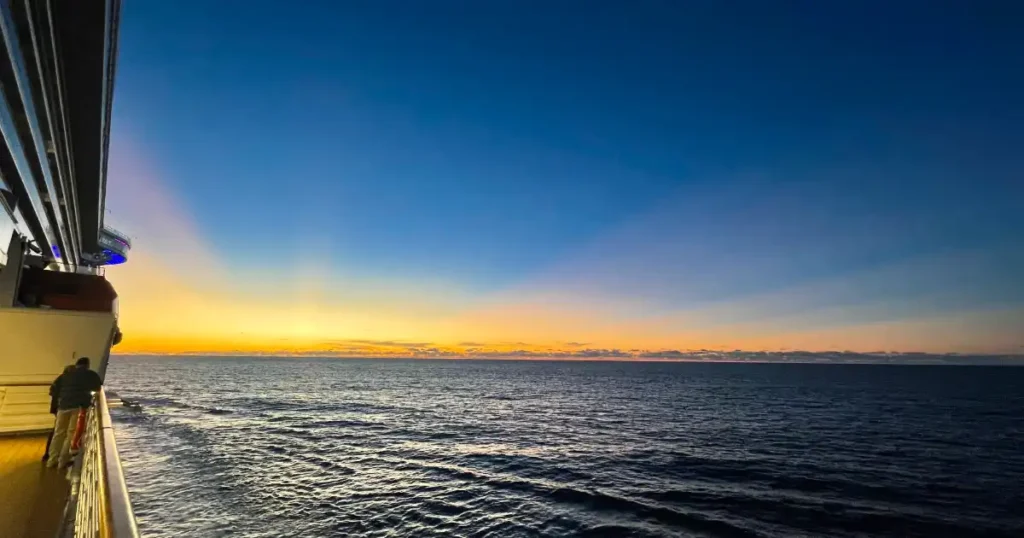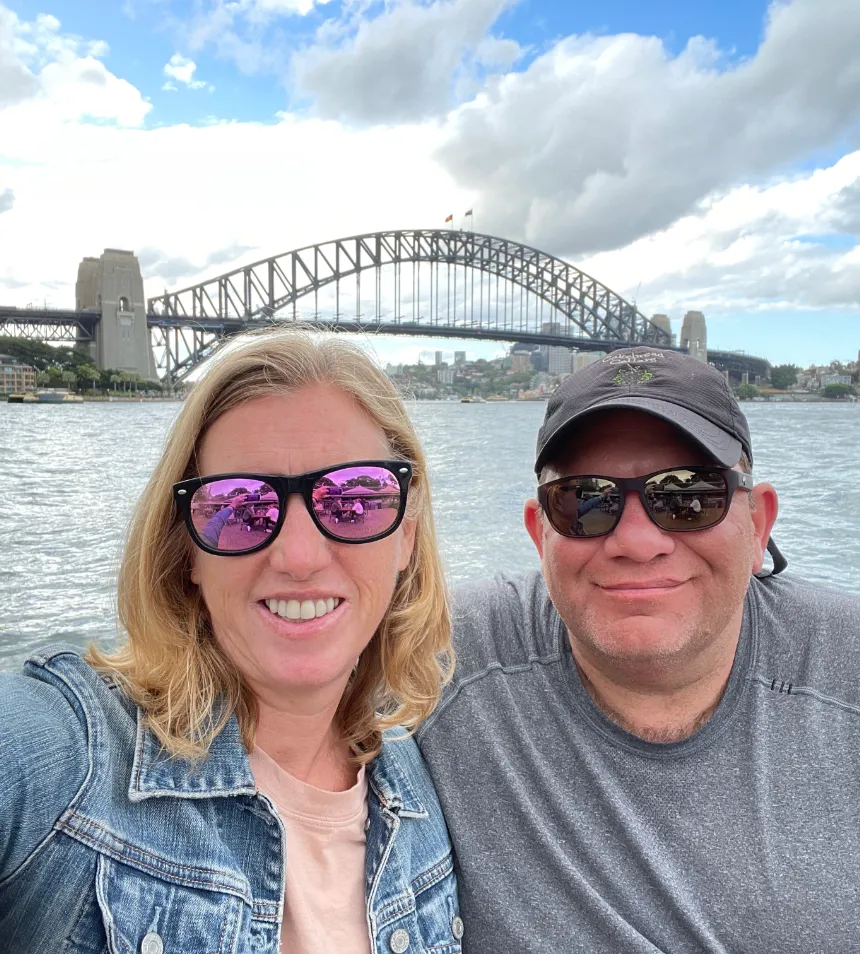Repositioning Cruise: Discover the Ultimate Slow Travel Adventure At Sea
Repositioning cruises occur when cruise lines move ships between regions. They offer an ideal, budget-friendly travel experience that combines freedom of time with the joy of a leisurely journey.
As empty nesters and slow travelers, a repositioning cruise is an affordable way to move between places and avoid the jet lag, discomfort of long-haul flights, and long layovers. These cruises are often less than the cost of the flight itself and are very affordable when you factor in the cost of food and lodging.
Table of Contents
This site contains affiliate links, which we may earn a commission from at no additional cost to you.
The resources we share are ones we have personally used and believe in.
What To Consider When Choosing A Repositioning Cruise
When choosing a repositioning cruise, it’s essential to consider the unique aspects of each type of journey. Transatlantic and Transpacific cruises differ significantly due to the distances involved, the number of port stops, and the overall nature of the voyage. Evaluate the itinerary to see how many ports of call are included and the length of time you’ll have in each. Unique destinations offer opportunities to explore places you might want to revisit later. Additionally, consider how the cruise’s distance and duration align with your overall travel plans—longer journeys may provide more relaxation and a deeper sense of escape but require careful integration into your broader itinerary.
Transpacific or Transatlantic? Comparing Repositioning Cruises
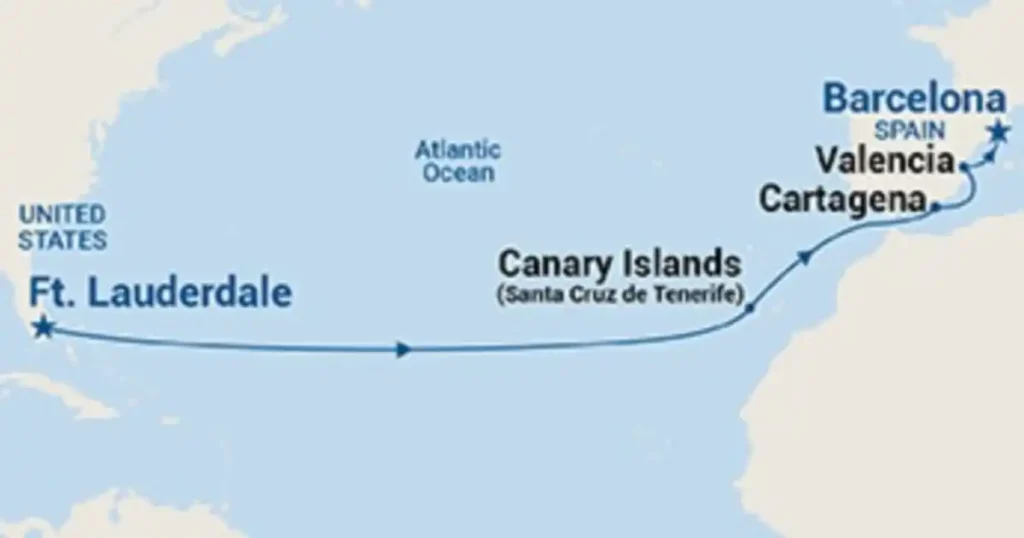
Transatlantic Cruises
- Typical Duration:
- 7 to 14 Days: Most Transatlantic cruises last between 7 and 14 days. The shorter duration typically covers direct routes between the east coast of the United States (e.g., New York, Miami) and Western Europe (e.g., the UK, Spain, Portugal).
- Longer Itineraries: Some longer Transatlantic cruises might extend to 15-21 days, including additional Caribbean or Mediterranean stops.
- Route:
- Shorter Ocean Crossing: The Atlantic Ocean is narrower than the Pacific, allowing for shorter crossings. For example, a direct crossing from New York to Southampton might take 6-7 days.
- Fewer Sea Days: Depending on the itinerary, these cruises might have a mix of sea days and port stops, but the actual time spent crossing the ocean is relatively brief.
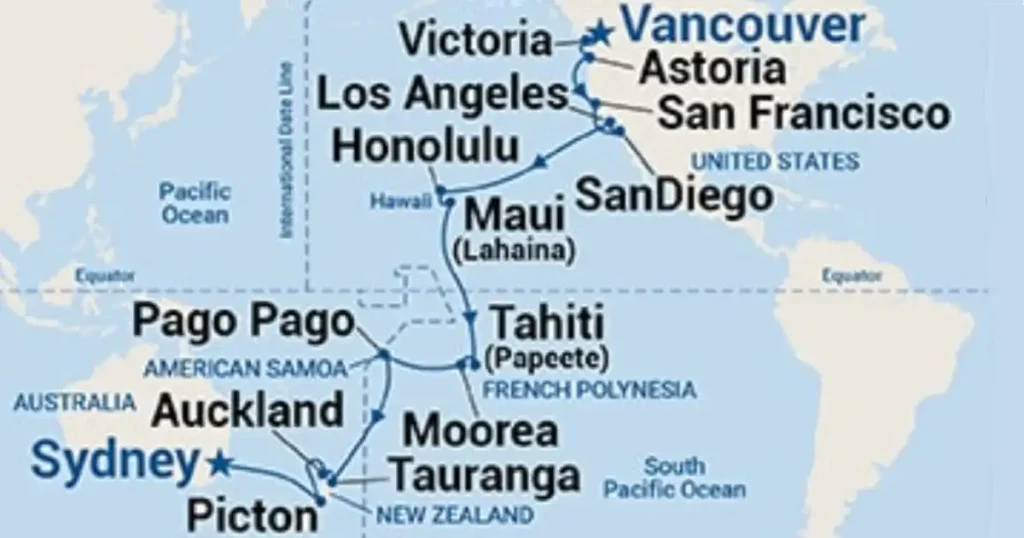
Transpacific Cruises
- Typical Duration:
- 15 to 30+ Days: Transpacific cruises are generally longer, ranging from 15 to 30 days or more. This is due to the vast distance between ports and the greater number of sea days involved.
- Extended Itineraries: Some transpacific cruises, especially those that combine multiple regions (e.g., Asia, Australia, and the South Pacific), can extend beyond 30 days.
- Route:
- Longer Ocean Crossing: The Pacific Ocean is the largest in the world, making Transpacific crossings significantly longer. For example, a crossing from California to Japan could take 10-12 days at sea, depending on the ship’s speed and route.
- More Sea Days: Due to the vast distances between destinations, Transpacific cruises often feature numerous consecutive sea days, sometimes 5-10 days at sea without a port stop.
Key Differences
- Distance: The Pacific Ocean is much larger than the Atlantic, leading to longer cruise durations for Transpacific journeys.
- Sea Days: Transpacific cruises typically involve more sea days due to the greater distances between landmasses, while Transatlantic cruises usually have fewer sea days and more frequent stops.
- Complex Itineraries: Transpacific cruises often include multiple regions (e.g., Asia, Australia, South Pacific islands), which adds to the duration. Transatlantic cruises are more straightforward, focusing on a direct crossing between Europe and North America.
- Internet: Due to satellite positioning, transatlantic cruises tend to have less reliable internet at sea. This is also true for Transpacific cruises leaving the Northern Hemisphere until they are further South. Connectivity is always changing as cruise lines adopt new technology; check with your cruise line for the latest info.
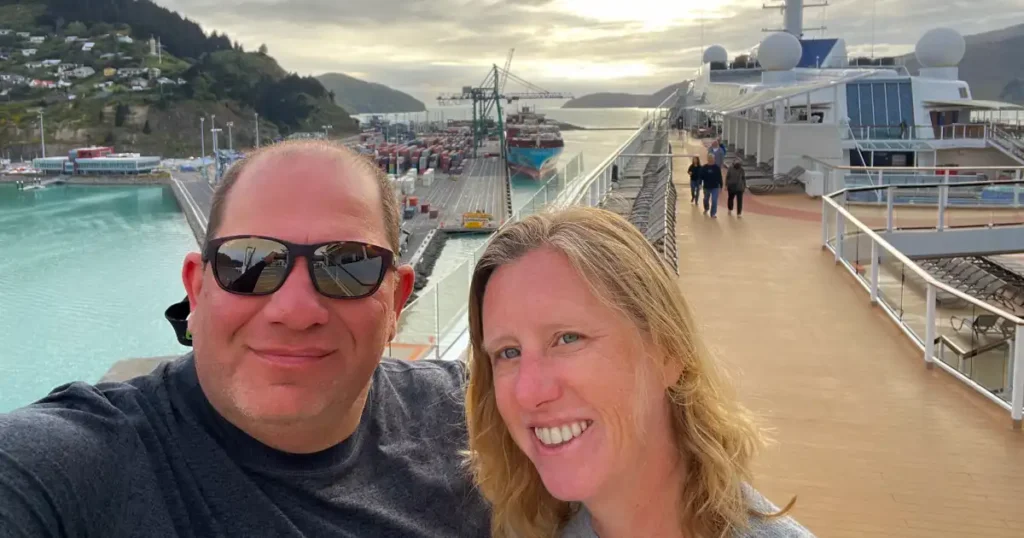
Why Empty Nesters and Slow Travelers Should Embrace Repositioning Cruises
Repositioning cruises provide a unique opportunity for empty nesters and slow travelers to explore multiple destinations at a leisurely pace, all while enjoying the comfort of a floating home. These cruises offer extended time at sea, perfect for relaxation and indulging in onboard activities, while also providing a cost-effective way to experience diverse cultures and landscapes.
Affordable and Extended Journeys
Repositioning cruises are often more affordable than regular cruises, making luxury travel accessible without breaking the bank. These cruises typically last between 10 and 30 days, giving you plenty of time to unwind, enjoy the ship’s amenities, and truly savor the journey.Discover Unique Destinations
With fewer and longer stops at less crowded, off-the-beaten-path ports, repositioning cruises provide the chance to explore diverse cultures and unique destinations. For slow travelers who value deep, meaningful experiences and empty nesters eager to see the world, this is an ideal way to do so without the usual tourist rush.A Perfect Environment for Relaxation and Connection
The extended time at sea offers a serene environment for reflection, creativity, and connection. Whether you’re looking to start a new project, enjoy quiet moments, or meet like-minded travelers, repositioning cruises create the perfect setting.Skip the Jet Lag and Long Haul Flights
Repositioning cruises offer a relaxing alternative to overnight flights and layovers. They allow you to cross continents without the hassle of jet lag. Seamlessly integrate these cruises into your travel plan for a stress-free way to move from one destination to another.
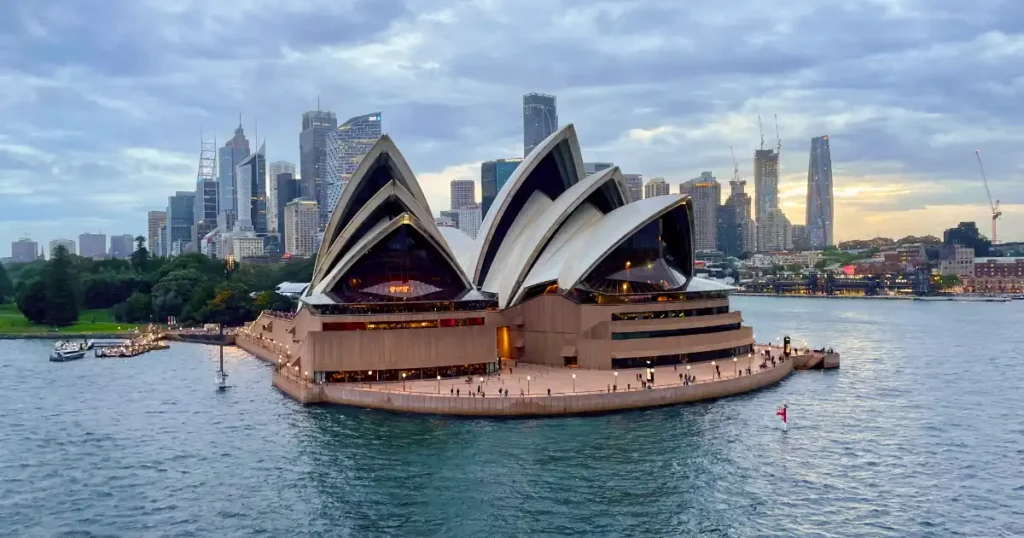
When is the Best Time to Book Repositioning Cruises, and Why?
Seasonal Savings Spring and Fall are prime times for repositioning cruises, as ships move between different regions—from the Caribbean to Europe in the spring and back in the fall, and across the Pacific for Transpacific routes. Booking early during these periods ensures you have the best selection of cabins and itineraries at competitive prices before they sell out.
Early Bird Discounts Cruise lines often offer early booking discounts for repositioning cruises, with prices typically lower when bookings first open. By securing your cabin 6 to 12 months in advance, you can take advantage of these deals and lock in a lower fare.
Availability and Pricing Repositioning cruises are limited and can fill up quickly. Due to higher demand, prices can increase as the departure date approaches, especially for popular routes. Booking early helps avoid these price hikes and ensures you get your preferred cabin and itinerary at the best possible rate.
Last-Minute Deals: While booking your reservations early is generally recommended for the best prices and availability, last-minute deals can be found if you’re flexible. However, this approach can be risky, as availability may be limited, and you could pay more if prices increase closer to the sailing date.
Price Protection Some cruise lines offer price protection policies, meaning if the price drops after you book, you can rebook at a lower rate or receive onboard credit. This feature adds value to booking early, knowing you’re protected against price fluctuations.
Maximizing Shore Excursions Booking early also gives you more time to plan and book shore excursions, which can help you better manage your overall travel budget by securing deals on these activities before they sell out or increase in price. Many destinations and excursions on repositioning cruises are only available during these crossings. More often than not, the ship’s access and availability to these excursions will sell out quickly. Research independent excursions as well as leverage websites like Viator.
How to Research and Find Repositioning Cruises
When searching for the right repositioning cruise, it pays to cast a wide net and compare multiple sources. Here are strategies we’ve found the most effective:
1. Join Cruise Communities
Facebook groups dedicated to cruising—especially those focused on repositioning itineraries—are excellent places to hear real experiences, get recommendations, and discover deals you might not find elsewhere.
2. Check Cruise Line Websites Directly
Cruise lines frequently update schedules and release exclusive promotions only on their own sites. Checking often ensures you don’t miss out on new routes or limited-time fares.
3. Sign Up for Newsletters
Subscribe to email lists from cruise lines and travel agencies. These newsletters often announce sales, last-minute discounts, and early booking promotions before they’re widely advertised.
4. Use Comparison Tools
Websites like Cruiseplum make it easy to search specifically for repositioning cruises, filter by ship or date, and spot the best deals. Pair that with Vacations To Go, which offers one of the largest databases of repositioning cruises worldwide, along with details on pricing, itineraries, and availability.
Resources We Personally Use
Cruiseplum – A powerful search tool with filters for repositioning cruises, helping you spot the best-value itineraries quickly.
Vacations To Go – A long-standing cruise discount site with a robust section dedicated to repositioning itineraries and fares.
Embrace the Journey with a Repositioning Cruise
Repositioning cruises offer a unique and fulfilling way to travel, especially for empty nesters and slow travelers looking to explore the world at a relaxed pace. By carefully considering factors such as itinerary, port stops, and how a cruise fits into your broader travel plans, you can choose the perfect voyage that aligns with your preferences. Whether you opt for a Transpacific or Transatlantic journey, these cruises provide an excellent opportunity to discover new destinations without the hassle of long flights and jet lag. The key to finding the best repositioning cruise lies in thorough research, timing your booking wisely, and utilizing various resources, from Facebook groups to cruise line newsletters. With the right planning, you can embark on an unforgettable adventure that combines the thrill of exploration with the comfort and convenience of cruising.

